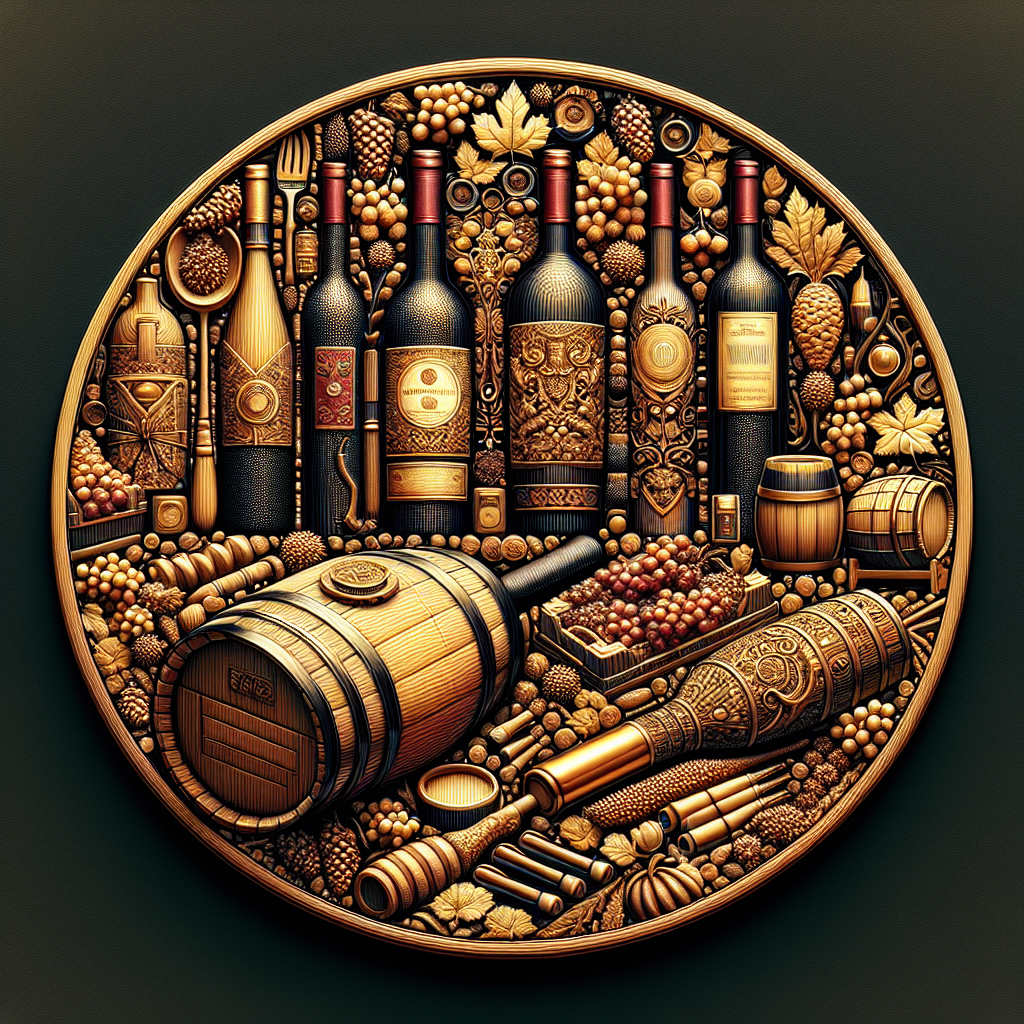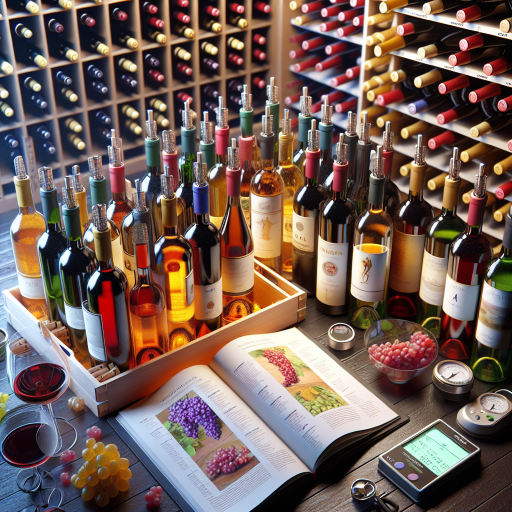
Introduction
The Importance of Cellaring Wine
As wine enthusiasts, we know the magic that comes from allowing wines to mature gracefully in a dedicated cellar. You've heard the adage: good things come to those who wait. This is particularly true with wine. By preserving bottles in optimal conditions, we unlock deeper flavours and aromas that only time can reveal. Cellaring wine isn't just about patience; it's about investing in exceptional future experiences. Whether you're just starting your collection or you're a seasoned connoisseur, understanding the importance of cellaring empowers you to make informed choices that enrich your tasting journey. Together, let's explore how to select the perfect wines to age, ensuring they're ready to impress when the moment is right.
What to Consider Before You Start
Before embarking on the fascinating journey of choosing wines to cellar, it's essential to consider a few key factors to ensure your selection becomes a treasured asset over time. First, reflect on your personal taste preferences; are you inclined towards robust reds, crisp whites, or perhaps sparkling wines? This self-awareness will guide your choices and enhance your eventual enjoyment. Additionally, consider the aging potential of different wine types. While some wines develop exquisite complexity with age, others are better enjoyed young. It's also crucial to think about your storage conditions. An ideal wine cellar maintains consistent temperature and humidity levels, preserving your wine's quality and taste. Lastly, don't forget about budget considerations; finding the right balance between investment and indulgence will ensure a fulfilling and sustainable wine collecting journey. Let's explore these factors further to help you build a cellar you'll love.
Factors to Consider When Choosing Wines to Cellar
Ageing Potential and Wine Varietals
When considering which wines to cellar, understanding the ageing potential of different wine varietals is crucial. Not all wines are meant to age, and the grape variety can significantly influence a wine's ability to mature gracefully. For example, red wines like Cabernet Sauvignon and Nebbiolo are renowned for their robust tannins and acidity, making them excellent candidates for long-term ageing. Similarly, white wines like Riesling and Chardonnay can develop captivating complexity over the years under the right conditions. It's pivotal to recognise that, while some wines flourish with age, others are best enjoyed young. By exploring the characteristics and ageing potential of various varietals, we empower ourselves to make informed decisions that enhance our wine cellar's diversity and future enjoyment. So, take the time to research and perhaps taste to understand which varietals align with your ageing aspirations.
Region and Terroir Influence
When choosing wines for your cellar, the region and terroir play a pivotal role in determining how well a wine will age. Terroir—a French term encompassing soil, climate, and topography—has a profound effect on a wine's character and ageing potential. In iconic wine regions like Bordeaux, Burgundy, or Tuscany, the unique interplay of these natural factors leads to wines that develop complexity and depth over time. By selecting wines from regions renowned for their ageing potential, you ensure that your cellar collection evolves into a treasure trove of mature flavours. Trust in the legacy and expertise ingrained in these regions, and you’ll be rewarded with wines that truly stand the test of time. Remember, choosing the right terroir is not just about geography; it’s about embracing the history and tradition each bottle represents.
Vintage Quality and Reputation
When considering wines for cellaring, the vintage quality and its reputation play a pivotal role. Every year, wine regions across the world face unique climate conditions, influencing the grapes' flavours and potential longevity. A highly regarded vintage often signals that the conditions were favourable, resulting in wines with excellent ageing potential. We recommend consulting vintage charts and expert reviews to understand which years stood out for specific regions and varietals. Moreover, connecting with local wine enthusiasts and sommeliers can provide valuable insights into vintages celebrated for their cellar-worthiness. By focusing on well-regarded vintages, you ensure your cellar becomes home to wines that not only mature gracefully but also offer exquisite taste when finally uncorked.

Storing Your Wines
Optimal Storage Conditions
When it comes to optimally storing wines in your cellar, it's all about creating the perfect environment that mirrors the conditions found in nature. We want to ensure your treasured bottles age gracefully. First, maintain a consistent temperature between 10°C and 15°C; fluctuations can spoil the wine's complex flavours. Humidity is another critical factor; aim for 60-70% to prevent corks from drying out or developing mould. Additionally, ensure your bottles are shielded from light, particularly direct sunlight, as UV rays can degrade wine over time. Lastly, eliminate vibrations that might disturb the sediment in your wines. By carefully monitoring these conditions, you'll set your wine collection up for long-term success, allowing each bottle to reach its full potential. Remember, with the right attention, patience rewards us with wine that tells a story in every sip!
How Long to Cellar Different Types of Wine
As we venture into the fascinating world of wine ageing, it's essential to understand how different types of wine evolve over time. Generally, red wines like Bordeaux and Barolo require patience, with optimal maturation periods ranging from 10 to 20 years. Whites such as Riesling or Chardonnay, depending on their structure and vintage, can beautifully develop over 5 to 10 years. Meanwhile, sparkling wines, like Champagne, reach their peak within 3 to 7 years, provided they have the potential for ageing. Fortified wines, such as Port, can gracefully age for several decades. It's crucial that we consider grape variety, vintage quality, and personal preference when selecting wines for our cellars. With thoughtful planning, we'll enrich our collections and savour the unique pleasures each bottle offers as it matures.
Tips for Building a Balanced Wine Cellar
Diversity in Varietals and Regions
Diversifying your wine collection by including a variety of varietals and regions is crucial for a well-rounded cellar. By exploring wines from different terroirs and climates, we open our palates to an array of flavours and aging potential. Think of classic regions like Bordeaux, Burgundy, or Tuscany for your reds and whites, but don't hesitate to explore lesser-known areas like Priorat or Marlborough. Each region offers its unique characteristics, influenced by the local soil, climate, and winemaking traditions. Similarly, incorporating different grape varietals enriches your collection. Try bold Cabernet Sauvignon, zesty Sauvignon Blanc, or velvety Pinot Noir. By embracing this diversity, not only will you enhance the depth of your cellar, but you'll also ensure a more dynamic tasting experience over time. Together, let's build a cellar that's as adventurous as our tastes!
Budgeting for Your Collection
When considering your budget for building a cellar, it's essential to strike the right balance between indulgence and pragmatism. It's easy to be lured by the allure of prestigious labels, but remember that a diverse collection requires strategic planning. Start by determining how much you'd like to invest, both initially and on an ongoing basis. We recommend allocating different percentages of your budget to various wine categories – red, white, sparkling, and fortified – to ensure a comprehensive selection. Keep in mind that some wines improve with age, so consider investing a portion of your budget in younger wines that will mature over time. By thoughtfully planning your expenditure, you ensure a well-rounded cellar that offers both everyday drinking options and bottles for special occasions, providing pleasure for years to come.
Conclusion
Final Thoughts
As we conclude our journey into the world of wine cellaring, let's remember that building a collection should be a deeply personal adventure. By choosing wines that resonate with your tastes and staying open to exploring new varieties, you create a collection that tells your unique story. We encourage you to trust your palate, seek advice from experienced sommeliers, and continuously educate yourself about emerging wine regions and vintages. Remember, wine is not just a beverage; it’s an experience that matures and transforms over time, much like our own tastes and preferences. Here's to creating a cellar that brings joy and a touch of discovery with every bottle you open. Cheers to your wine journey!
Why Use Viniou for Wine Cellar Management
As we conclude our journey on choosing the right wines for your cellar, it's essential to have a reliable system in place for managing your collection, and that's where Viniou comes in. We understand that whether you're a novice or a seasoned oenophile, keeping track of your cellar's treasures can be daunting. With Viniou, you gain an intuitive and user-friendly platform that simplifies the task. It allows you to catalog your wines with ease, track their maturity, and receive tailored recommendations based on your preferences. This way, you can make informed decisions, ensuring that each bottle reaches its optimal peak when you decide to open it. Let us assist you in turning your wine cellar into a well-organized and enjoyable part of your wine journey.